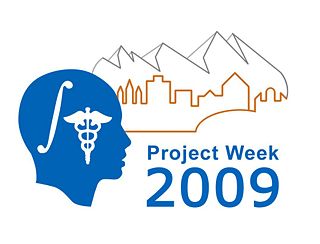Difference between revisions of "2009 Winter Project Week Slicer VMTK"
| Line 10: | Line 10: | ||
* [[User:haehn |Daniel Haehn]] (Student of Medical Informatics, University of Heidelberg) | * [[User:haehn |Daniel Haehn]] (Student of Medical Informatics, University of Heidelberg) | ||
* [[User:lantiga |Luca Antiga]] (Medical Imaging Unit, Biomedical Engineering Department, Mario Negri Institute) | * [[User:lantiga |Luca Antiga]] (Medical Imaging Unit, Biomedical Engineering Department, Mario Negri Institute) | ||
| + | *Ron | ||
<div style="margin: 20px;"> | <div style="margin: 20px;"> | ||
Revision as of 02:50, 3 January 2009
Home < 2009 Winter Project Week Slicer VMTK Return to Project Week Main Page |
Key Investigators
- Daniel Haehn (Student of Medical Informatics, University of Heidelberg)
- Luca Antiga (Medical Imaging Unit, Biomedical Engineering Department, Mario Negri Institute)
- Ron
Objective
The Vascular Modeling Toolkit (VMTK) is a collection of libraries and tools for 3D reconstruction, geometric analysis, mesh generation and surface data analysis for image-based modeling of blood vessels. It should be very interesting to offer such techniques in Slicer3.
Approach, Plan
VMTK provides Python pipeable scripts (PypeS) to connect various commands and/or scripts. An automated mechanism to generate non-interactive Slicer modules has already been implemented.
The plan is to write a python scripted module for Slicer3 that connects to VMTK pipes and provides the same user interaction style found in VMTK. This is necessary for interactive segmentation.
In addition, a collection of non-interactive modules relevant to segmentation and characterization of vascular networks will be generated.
Finally, Slicer-vmtk packaging issues will be tackled.
Progress
For preparation:
- ground work for making an interactive python scripted module
- playing with VMTK pypes to generate some CLI VMTK scripts